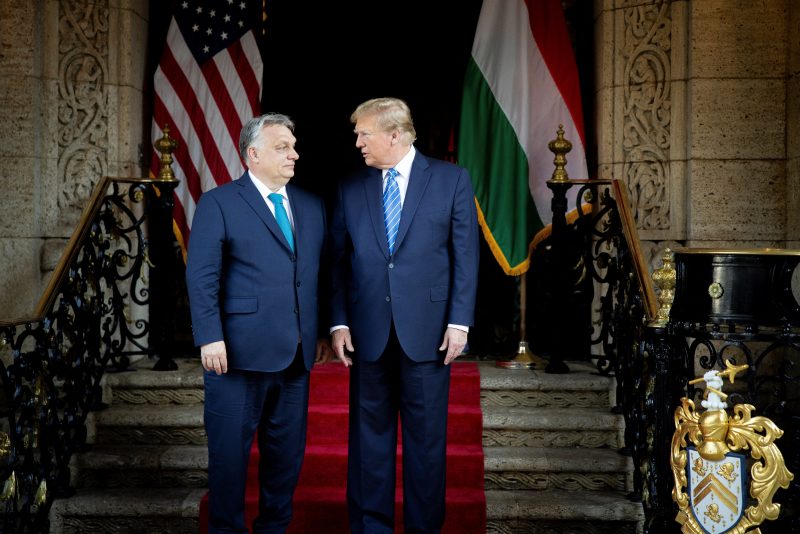
Unprecedented Summit: Trump Convenes with Hungary’s Controversial Leader, Orban
In a recent diplomatic move that has sparked both curiosity and controversy, former U.S. President Donald Trump held a meeting with Hungarian Prime Minister Viktor Orban, a figure often described as an autocratic leader. The encounter between the two powerful politicians took place against the backdrop of Orban’s increasingly authoritarian rule in Hungary and Trump’s own aspirations for a political comeback in the United States.
The meeting, which took place at Trump’s Mar-a-Lago estate in Florida, marked a significant moment in the political trajectories of both leaders. Orban, known for his strongman tactics and nationalist rhetoric, has been criticized by international observers for undermining democratic institutions and consolidating power in Hungary. Meanwhile, Trump’s tenure as president was marked by controversial policies and actions that polarized American society and sparked debate about the state of democracy in the country.
The decision to meet with Orban has raised questions about Trump’s motives and the potential implications of his engagement with an autocratic leader. Critics have pointed to Orban’s track record of silencing dissent, curtailing press freedom, and targeting marginalized groups as reasons why such a meeting is troubling. Moreover, Orban’s alignment with far-right ideologies and his cozy relationship with Russian President Vladimir Putin have further fueled concerns about the direction of Hungary’s domestic and foreign policies.
On the other hand, supporters of the meeting argue that diplomatic engagement with leaders like Orban is necessary for advancing strategic interests and fostering dialogue between nations. They contend that Trump’s willingness to engage with a controversial figure like Orban demonstrates his commitment to navigating complex geopolitical dynamics and pursuing his vision for American leadership on the world stage.
The meeting between Trump and Orban comes at a time of growing uncertainty and geopolitical tensions, with authoritarian regimes gaining influence in various parts of the world. As democracies face increasing challenges and threats to their values and institutions, the diplomatic choices made by leaders like Trump take on added significance.
In the aftermath of their meeting, the international community will be closely watching to see how Trump’s interactions with Orban may impact global politics and the future of democracy. The dynamics of power, influence, and ideology at play in this encounter have the potential to shape the course of political developments in both Hungary and the United States, as well as influence wider geopolitical trends in an ever-changing world.
